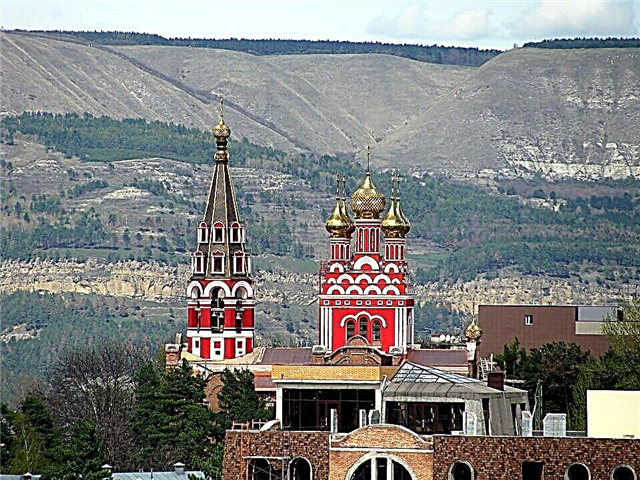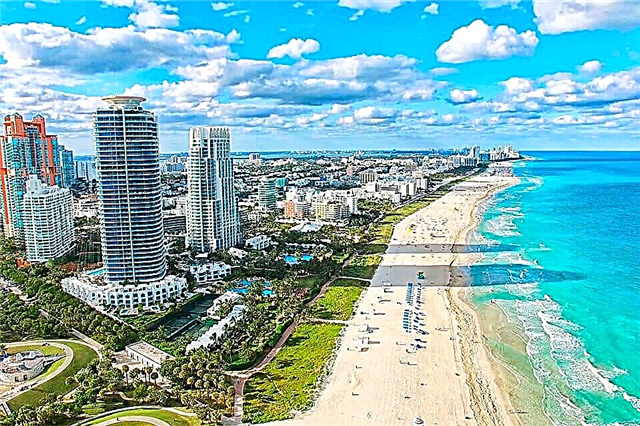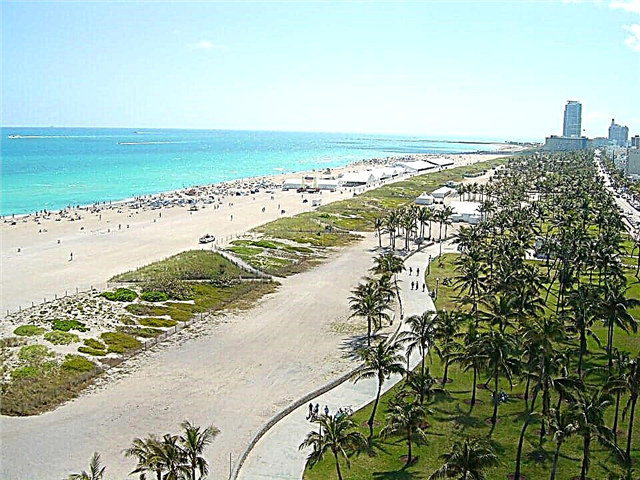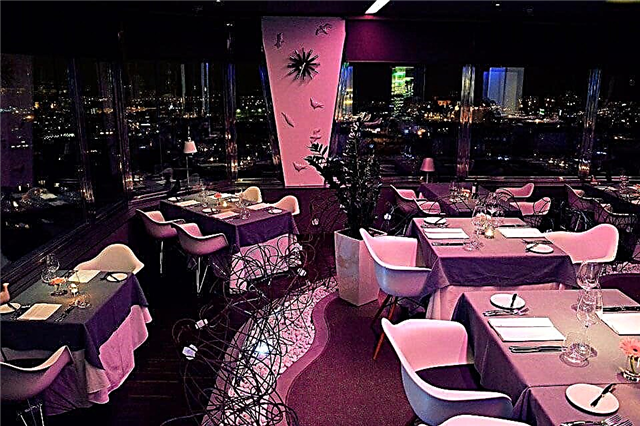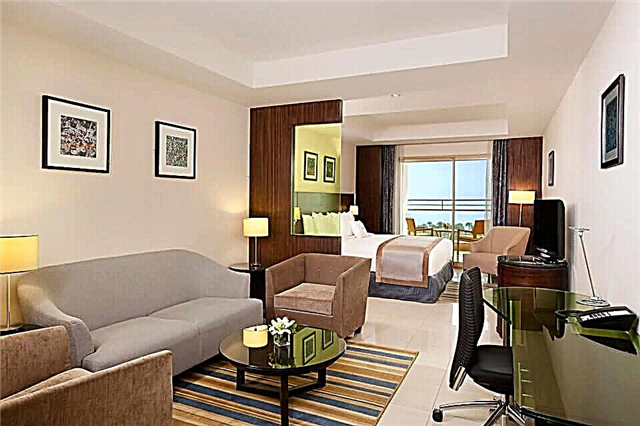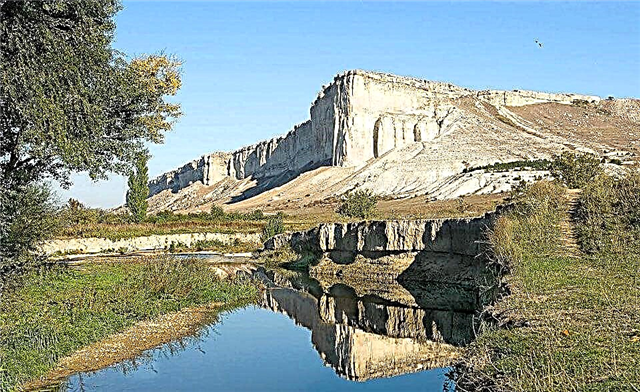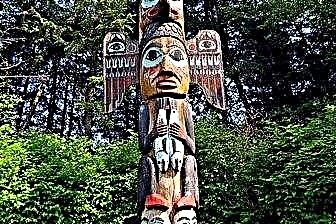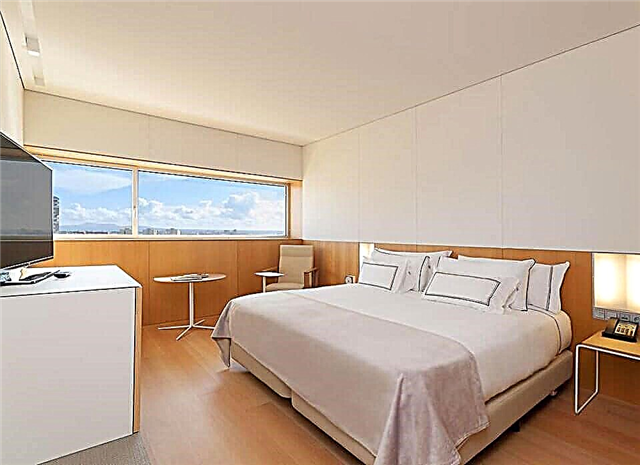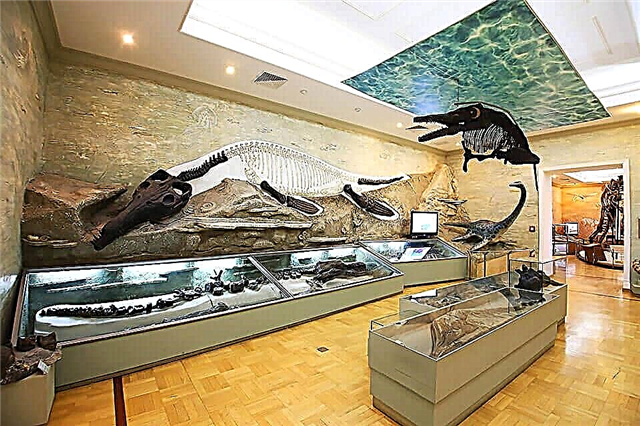This city connects East and West. Orthodoxy and Islam are intricately intertwined here, and people of different nationalities feel surprisingly comfortable. This is a city where the authorities pay attention to the development of tourism and do everything possible to attract guests. Industry and infrastructure are actively developing here, but ancient traditions are preserved.
There are many UNESCO World Heritage Sites in this city. However, some have a long history, but were built quite recently. It is noteworthy that interesting buildings are located in the center and are compactly located. What to see in Kazan in 1 day on your own: of course, Kazan itself!
Central Park of Culture and Rest. Gorky

Today it is a pleasant place to stay. Shady alleys, well-groomed corners with garden benches, almost tame squirrels.
Citizens and visitors willingly spend their time in TsPKO. And the people of Kazan fell in love with the park back in the 19th century. The unusual relief of the area reminded of the mountainous Switzerland, so the city authorities arranged a territory for walking. A brass band played here, and smart townspeople strolled along the alleys. Today, the park has something to do for people of all ages.
There is a cozy cafe on the territory, where visitors are offered a children's menu. And if the kids want to spend time actively, you should go to the rope rides. There is a playground for the little ones. It is especially pleasant in the park in summer: dancing fountains turn on. During the day, these are ordinary pools, and in the evening the lights are on, and the jets dance to the beat of the music.
Fountains are always crowded. And nobody is afraid of water dust on clothes. CPKO is located in the Vakhitovsky district of the city. It is closed by Vishnevsky and Ershova streets. And on the western side is the Suvorov Military School.
National cultural center "Kazan"

This institution was founded in the 80s of the twentieth century as a branch of the State Museum. IN AND. Lenin. The main task: collection, storage of documents and campaigning. After the collapse of the USSR, the center was redesigned. Today it is an interesting place where you can spend several hours.
The building employs:
- city philharmonic
- museum of national culture
- art Gallery
- hall for concerts and film demonstrations
- audience
- Exhibition Center
reception hall
Hungry guests can dine at the Horriyat Cafe. It serves Tatar and European cuisine. The center holds regular events. Art groups based on its site perform here.
Guests are invited to watch national dances, listen to good music and appreciate theatrical performances. The center is located on Pushkin Street, house 86. A 40-meter-high statue will serve as a reference point. At its top there is a woman-bird - Horriyat. This is a symbol of freedom, sung in the legends of the Tatars.
Kremlin embankment

The embankment under the Kremlin wall has existed since time immemorial. But it was reconstructed only in 2015.
This was facilitated by the development of the left bank of the Kazanka, the construction of the Palace of Agriculture and Palace Square. Today the embankment is a favorite walking place for locals and numerous tourists. Moreover, you can get on it immediately after examining the Kremlin. The embankment is more than 1.5 km long. Is a well-groomed and landscaped area.
Smooth asphalt paths, attractions on land and on surface platforms, a children's train with bright carriages. Cozy benches, shady gazebos and pavilions are located along the embankment. The area is decorated with sculptures.
A separate section is dedicated to cycling and rollerblading. It is covered with a roof. And in winter, the path is flooded, and it turns into a skating rink. Citizens bring skates with them, and tourists rent them. You can ride until late: the area is illuminated by lights.
The embankment is located on Fedoseevskaya street, house 1.
Kazan Kremlin

The Kremlin is one of the symbols of the capital of Tatarstan. It is included in the UNESCO heritage list. On the territory of the fortress, Russian and Tatar cultures bizarrely coexist, and a detailed examination of the monument will take several days. For the convenience of guests at the main entrance there are billboards indicating objects. And the visitors themselves decide what to see first and what to leave for later. And at the box office you can buy tickets for a sightseeing tour.
The buildings of the Kremlin were built at different times. And today tourists will see:
- the stunning Kul Sharif Mosque, built in 2005
- Orthodox Cathedral of the Annunciation
- preserved remains of the khan's palace
- foundation of the ancient mausoleum of the Tatar khans
- Consistory building
- tower of queen Syuyumbike
- Junker school
- governor's house
- artillery yard
And near the central entrance, guests are greeted by the stone Musa Jalil, a poet who died in a fascist dungeon. His Moabit Notebook amazes modern readers. It is pleasant to walk around the territory: it is clean here, flower beds are laid out, trees are planted. In the Trading Rows you can buy souvenirs as a keepsake and as a gift. The Kremlin is located at Kremlevskaya Street, 2.
Mosque "Kul-Sharif"

Kul Sharif is the most famous mosque in Russia. The first prayer took place in it in 2005, and the foundation stone was laid in 1996.
The President of Tatarstan partially allocated money for the large-scale construction. But the account received a lot of donations from individuals and organizations. When designing, the architects were faced with the question: how to reproduce the details of the mosque destroyed after the capture of the fortress by order of Ivan the Terrible.
And here the notes came to the rescue, which were kept during the campaign by the voivode Andrei Kurbsky. He knew little about Islamic traditions, but described the cathedral mosque in some detail. They named the mosque in memory of the last defender of the fortress. Imam Seyid Kul-Sharif was a descendant of the Prophet, a respected, already elderly person.
He shared with the defenders all the hardships of the siege for many days. And when the soldiers fell, the imam gathered his shakirds (boys 12-15 years old from the madrasah) and took the last battle. All the defenders were killed. Their courage shook Kurbsky, this feat was also described by the governor. Kul Sharif is a majestic structure.
It is often compared to the Blue Mosque in Istanbul, but Kul Sharif is unique. This is a whole complex where educational and museum work is carried out. An exposition is located on the ground floor, the walls are decorated with shamail.
Anyone can go inside and inspect the interiors, but it is necessary to respect the feelings of believers. A shop at the entrance, where you can get hats, capes and shoe covers, will help to keep all the decencies. The Kul-Sharif Mosque is located on the territory of the Kremlin.
Museum of Natural History of Tatarstan

This is a new exposition: it received its first visitors in 2008. The exhibition originally consisted of an amazing collection of minerals. But later, stands appeared with the skeletons of prehistoric animals found on the territory of the Volga region.
Today, guests will get acquainted with fragments of meteorites, see a stuffed woolly rhinoceros. Children stand idle for a long time in front of a model of a real mud volcano.
The center has interactive exhibits, with the help of which visitors independently get acquainted with interesting objects. At the box office you can rent an audio guide, or you can book a tour. It will be interesting for both adults and children. When and where will you have to sit on the shores of the ancient Kazan Sea, weigh yourself on amazing space scales, take a walk with a real dinosaur?
The center offers to explore the past and present of the surrounding world in an entertaining way.The Museum of Natural History of Tatarstan is the only institution of this type in the Volga region. It combines interactive and traditional forms of information presentation.
The center is located on the territory of the Kremlin, building 12.
National Museum of the Republic of Tatarstan

The exposition is based on the personal collection of A.F. Likhachev. It consisted of weapons, jewelry, paintings, Egyptian figurines and Stone Age tools. After the death of the collector, his brother bought the artifacts from the widow and handed them over to the city with the condition: never to share the exhibition. Today the center has a multipurpose status.
Expeditionary work is underway.
The objects of everyday life, national settlements, local customs are being investigated. Publishing books on various topics. Circulation is small, research results, books, booklets, catalogs, advertising materials are printed. All this can be purchased at the gift shop at the center. Excursion work. Themes are offered for children of different ages and adults. No one gets bored: guides combine storytelling with interactive screens and simulators. Library activity. The center has an excellent selection of materials.
Any visitor can go to the reading room and study the literature of interest. Guests can familiarize themselves with the permanent exhibition on their own or take a guided tour. But you should sign up in advance: in the center, the groups are recruited instantly.
The National Museum of the Republic of Tatarstan is located at 2 Kremlevskaya Street.
Park "Black Lake"

The park is laid out on the site of an artificial reservoir. Once upon a time, springs gushed in the lowland, the inhabitants built a dam, the water collected in a natural basin. The water was so pure that it was used for drinking and making local bread. The territory was quite picturesque: the city authorities turned the vicinity of the Black Lake into a place for walking.
The townspeople fell in love with the new park. But at the end of the 19th century, restaurateur Ozhegov opened a drinking establishment near the lake, and the reputation of the surrounding area deteriorated. Thieves and ladies of easy virtue hunted here. The townspeople stopped visiting their once favorite place, and the reservoir was silted up and shallowed. The city authorities decided to fill up the lake and build a park in its place. Subsequently, there was a skating rink, an industrial exhibition and a dance floor on the territory.
In the early 2000s, the city authorities decided to restore the attractiveness of the park. The territory was reconstructed. Now there is a clean pond with a small fountain, wonderful anti-slip paths and a semicircular veranda. There are flower beds and flowers on the territory.
In winter, a skating rink is flooded for the townspeople. It's nice that the ramps are equipped for wheelchairs. The Arch of Lovers is especially fond of residents and tourists. The acoustics are amazing here: standing at different ends of the building, people hear every breath and every word.
Black Lake is located in the Vakhitovsky district, it is bounded by Chernyshevsky, Lobachevsky and Dzerzhinsky streets.
Monument to the carriage of Catherine II

In 1767, Empress Catherine visited Kazan. The townspeople prepared for this event in advance: the future of the Tatars depended on the decision of the empress. Until now, there were restrictions on trade, settlement and open practice of Islam, introduced by Ivan the Terrible. And the children of wealthy Muslims were sent abroad to get education.
The queen visited 2 settlements: Tatarskaya and Sukonnaya. She was pleased with the honor she received in the Tatar settlement, and upset at the reception in Sukonnaya (from Orthodox subjects). Therefore, Catherine satisfied all the requests of the Muslims. Since that time Kazan became the eastern capital of the empire. An unprecedented leap took place in the development of the city and the province. Muslims were allowed to practice their religion and take part in government.
Merchants and industrialists from the west and east came to the city, many lived for several years, founded enterprises. Everyone was comfortable. And in order to perpetuate the significant event that led to such changes, the townspeople immortalized Catherine's carriage.
The queen got into it, disembarking from the ship. The carriage itself is in the State Museum. And on Bauman Street (local Arbat) there is a replica made of metal.
Kazan Millennium Park

The place for the recreation area was not chosen by chance. The district is located close to the center, but it was not prestigious to live in it: in the spring the territory was flooded by the waters of Lake Kaban. Therefore, the city authorities settled the inhabitants of the Khrushchev barracks and laid out a wonderful park.
The event was timed to coincide with the celebration of the 1000th anniversary of Kazan. The recreation area is surrounded by a stone fence and depicting national motives. Zilants, symbols of the city, are comfortably located on the tops of the pillars.
And the whole territory is divided into parts:
- Sadness garden. A cozy area where weeping willows hide visitors who are sitting on benches or in gazebos.
- Meydan Garden. An open space where business meetings are scheduled and important negotiations are held.
- The garden of love. There is an abundance of small architectural forms that create a romantic mood.
- Continuous flowering garden. It was laid out on a hill, and according to the design of the designers, they planted flowers and shrubs, the flowering of which replaces each other.
- East garden. Everything here reminds of the Tatar and Bulgar cultures.
The alleys intersect in the center. This is also symbolic: the city connects East and West. You can enter the park through 7 gates (also a mystical number).
The center of the zone is the Kazan fountain. A huge bowl is made in the form of a cauldron, from which the Zilants spew water jets. The newlyweds come to the fountain for a photo session. There are also 2 trees planted in the park, which are covered with pink flowers in spring. The locals call the plants sakura.
The park is located along Ostrovsky Street, near the shore of Lake Nizhny Kaban.
Kaban lake embankment

Once Lake Kaban was a single body of water, which was formed from the oxbow of the Volga. But later it was divided into 3 parts: Lower, Middle and Upper. This is a unique natural monument, therefore, when designing the embankment, it was necessary to take into account the peculiarities of the hydrostructure. The work was completed in 2018.
Now guests and residents have an excellent comfortable embankment. Paths are laid along the coast, gazebos, pergolas and benches are placed. A musical fountain has been built in the center of the lake, and many people come to see it in the evening.
Cycling paths with a special coating have been laid. Residents and guests of the capital of Tatarstan willingly ride on them. Bicycles can be rented. On the eastern bank, water gardens are arranged: a system of plants that purify the water and prevent the siltation of the reservoir.
For those who are interested, excursions are arranged here. Children can try themselves in the role of a hydraulic engineer or an ecologist: they are allowed to manage water. And for the little ones, a playground is prudently arranged. This is only part of the work done: the implementation of the Green-Blue Ribbon environmental project is ahead. Upon completion of the work, all 3 lakes will connect a single park with a recreation area.
The embankment is located in the Vakhitovsky district.
Tatar village "Tugan Avylym"

The village was built in 2005 to commemorate the 1000th anniversary of the city. The organizers recreated the life of their native village with houses, craft workshops, a mill, courtyards and even a mosque. Here you can see how Tatars of different incomes lived, what they did. Hungry guests are invited to visit a pancake or barbecue.
The cafe offers a wide range of national pastries. And lovers of manual labor - try their hand at making crafts in the workshops. And just a walk around the territory is interesting. It is clean and comfortable here, green grass on the lawns and fish in a small pond.
Children are happy to spend their time in the rope town, and toddlers - on the playground. And for animal lovers there is a small farm with chickens, ducks and goats. And all of this is within reach.
But that's not all.The administration arranges theatrical events for its guests. Folk music sounds, Tatar treats are placed on the table. The host talks about local traditions, gives funny tasks. Tickets for such events must be purchased in advance.
The village is located along Tufan Minnullin street, house 14/56.
Puppet theater "Ekiyat"

This theater began operating in 1934. Then he was given a church building. But in 1992, Ekiyat received new premises. It was built on the initiative of Mintimer Shaimiev and was financed from the budget of the republic.
The performances are in 2 languages: Tatar and Russian. There are 2 halls in the theater: large (for 250 seats) and small (for 100 seats).
The repertoire is designed not only for young, but also for an adult audience. But even if you don't have time to watch the performance, you can just walk around the building. Such a Tale (this is how the name is translated) is worth it. Ekiyat was built in the form of a fairytale house with fairy-tale figures on the walls.
The theater is located on Peterburgskaya street, house 57.
Zoo Botanical Garden

Zoobotzad is the only institution in Russia that connects the zoological and botanical sections.
The goals of the garden:
- conservation and reproduction of rare and endangered species
- participation in international educational programs
- attraction of youth to work
- development of educational programs
- work with special children
educational work
Today Zoobotsad is the most visited place in the city. Adults and children come here to look at rare animals, see endangered plant species, and listen to an entertaining excursion. The zoo-botanical garden is located along Khadi-Taktash street, house 112.
Waterpark Riviera"

This is an amazing place where you can relax by the water all year round. Entertainment is presented for every taste: from extreme to calm. For kids, a paddling pool with fountains and gentle slides is organized. And fans of steep slopes will appreciate the Tornado attraction.
Visitors are also welcome in the sauna with an ice plunge pool. And for the hungry there is a bar and a cafe. There are lockers in the changing rooms where guests leave their outerwear. And if the decision to visit the Riviera came unexpectedly, you can buy bathing accessories in the shop at the entrance. During the holidays, children and adults are supervised by lifeguards. And you can get to the attraction only by going through the height gauge.
The riviera is located on Fatykh Amirkhan street, building 1.

